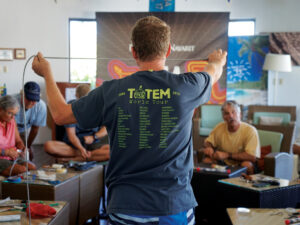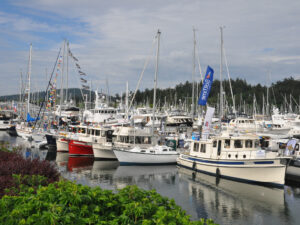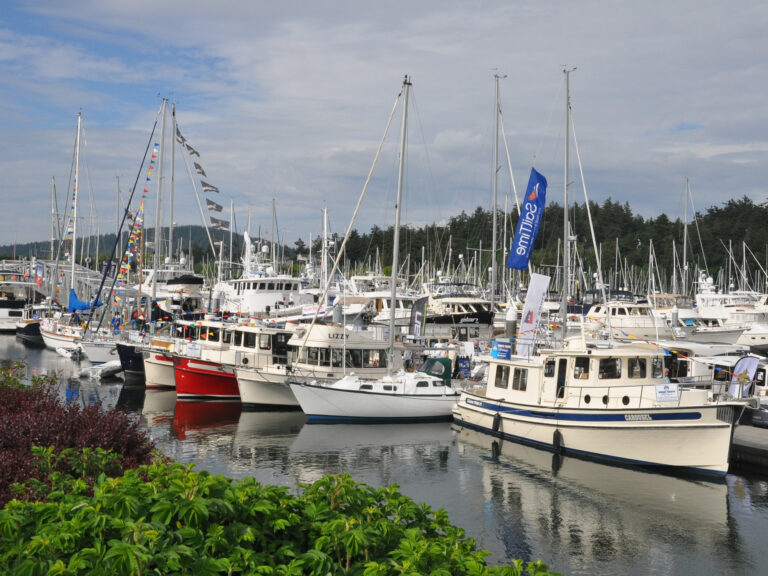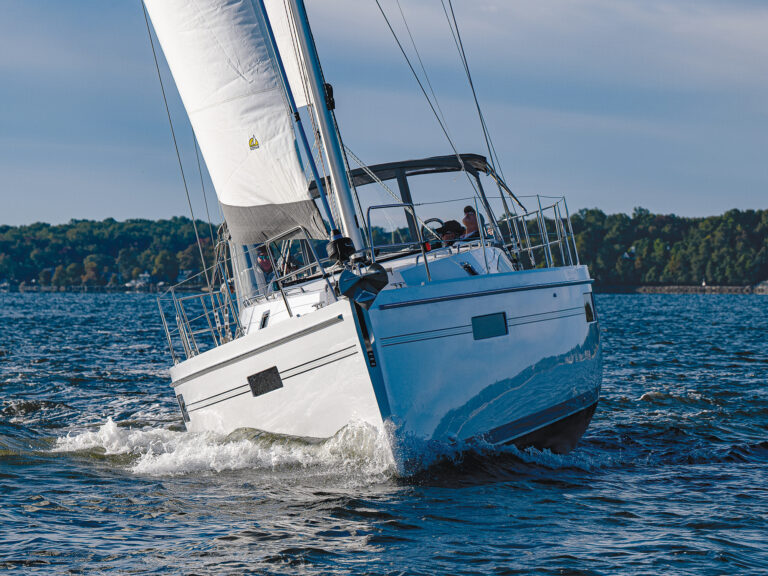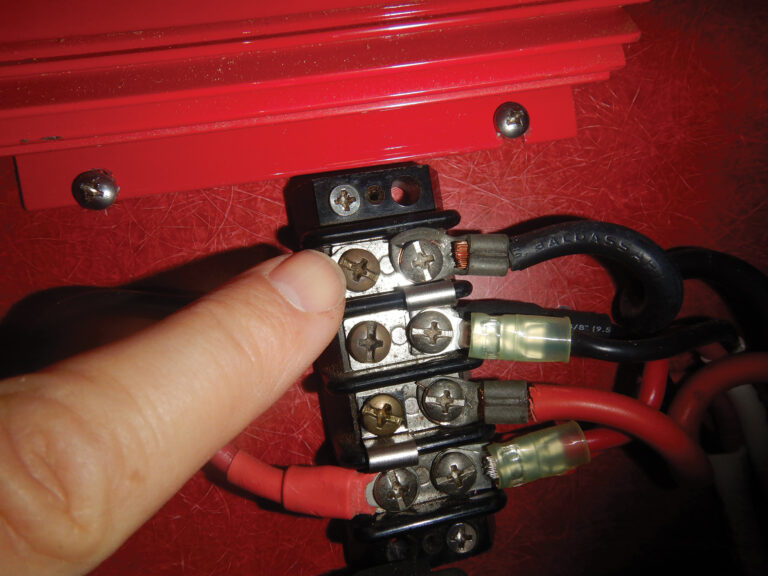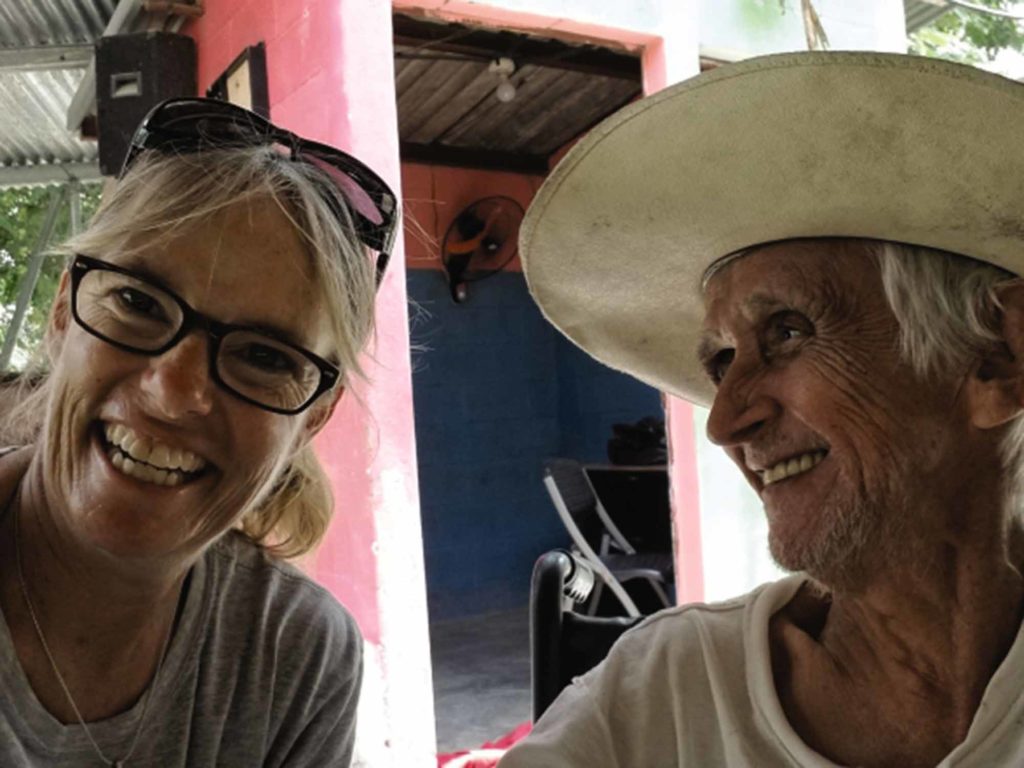
While my husband, Ken, and I were in Rio Dulce, Guatemala, aboard our Morgan 38, Mary T., I was eager to experience village life beyond the typical cruiser hangouts, and I was intrigued by the work of a charity called Pass It On Guatemala. Julia Bartlett, a British cruiser, created the organization in 2014 after sailing from England and island hopping through the Caribbean. Currently in her mid-70s, she has the energy of a teenager and works nearly every waking hour on her charity, without renumeration. She winces at the appellation of “Saint.”
When I first met Bartlett in 2016, Pass It On Guatemala (passitonguatemala.org) had one simple mission: recycling discarded boat batteries and solar panels to light up schools and clinics in remote villages. Schools often double as community centers, and with the lights, village councils could hold meetings at night. Pass It On also offers solar lanterns to households with school children. “Kids were straining their eyes studying by candlelight or kerosene lamps,” Bartlett explained.
Over the years, the organization has expanded its mission. Now the team brings villagers first-aid kits, copies of Where There Is No Doctor in Spanish, eyeglasses and soccer balls. At an old-folks home for the poorest of the poor, volunteers prepare lunch, offer medical supplies, and shower the needy residents with smiles and hugs. Pass It On has also given scholarships to high school students, and puts on an annual lifesaving course for marina employees.
The charity is as much a boon to the environment and cruisers as it is to Guatemalans. Bartlett and her volunteers come directly to your boat to pick up used batteries and solar panels. Cruisers donate everything, from old boat parts to sails and clothes, which Pass It On sells at a bimonthly cruisers flea market, the organization’s primary source of revenue. Bartlett is the queen of recycling, reusing and repurposing.
Before I got the chance to go out to a village on an installation mission, I fell down in the marina parking lot and fractured my patella. Splat! All I could do was work the flea market and live vicariously through other volunteers, an eclectic bunch from around the globe. They described villages full of friendly, smiling children living in simple wooden homes with thatch or tin roofs and women cooking over open fires. Though most are subsistence farmers, a small number of villagers commute to towns for low-paying jobs. Rice and beans are their mainstay, but they always provide their best to volunteers, often offering chicken or fish for lunch.
“When we get it all set up and the lights go on, the kids clap and cheer,” said Rick, from Sojourner, a Pacific Seacraft 37. A former auto mechanic and owner of rental properties, he’s no stranger to electrical installations and is an invaluable asset in the field. “The first time I went to a village, we rode in the back of a pickup truck for over an hour and then hiked uphill for two hours,” he said. “When we got there, everyone gathered around us. They were fascinated by the electric drill. They’d never seen one before.”
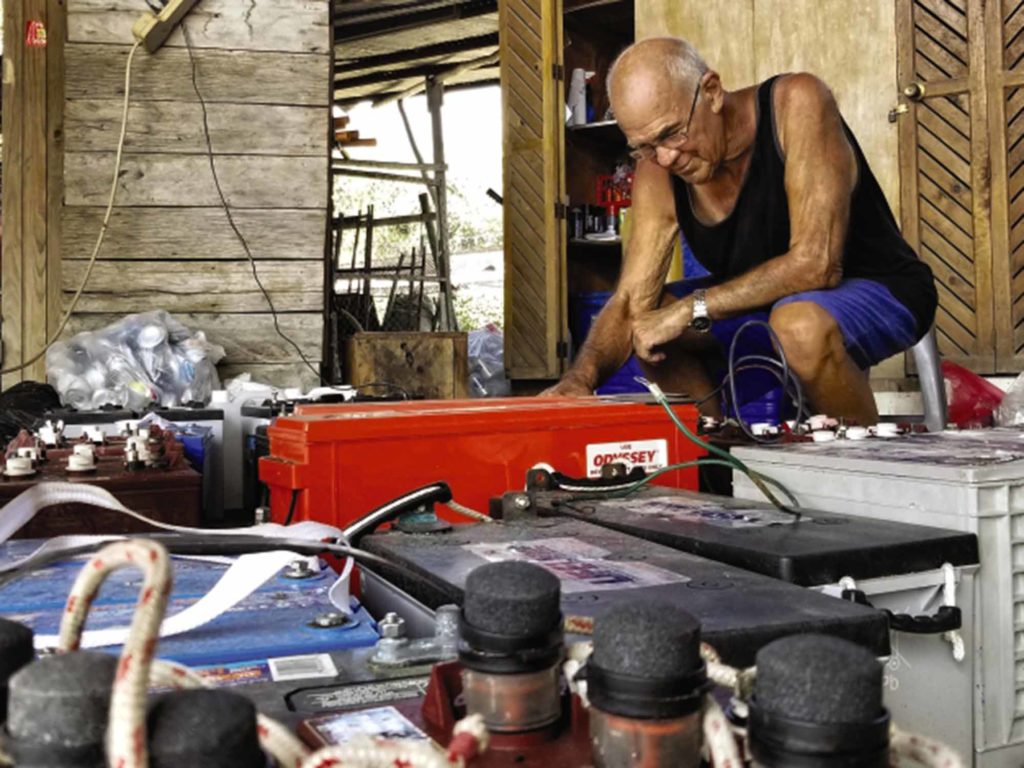
What Rick liked best about volunteering was interacting with all the kids, and imparting his knowledge of electricity and wiring. “There was this one little boy in a village who followed me like a shadow. Every time I turned around, he was right there smiling at me, watching everything I did. I know people say it all the time, but helping others really does feel good, especially when you’re providing something folks really need.”
Jim on Dreamaway, a Hardin 45, echoed Rick’s feelings. “These people have next to nothing, but they’re so happy and grateful for what we’re offering. The kids get really excited when we come.” Jim spoke glowingly of the villagers’ work ethic and the democratic fashion in which the village councils operate. “It’s impressive,” he said. With his shock of white curly hair and beard, many kids think Jim is Santa Claus. “I tell them that the North Pole is too cold this time of year, so I like to come down here.”
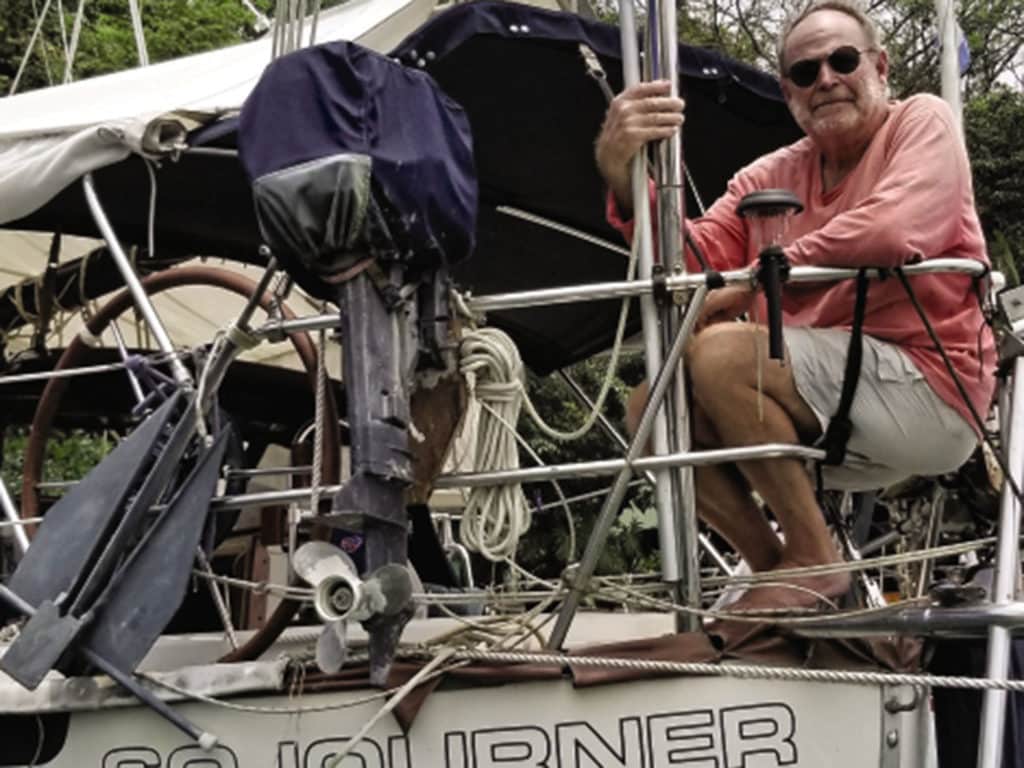
Volunteers travel out to the sites in the back of a pickup truck or via motorboat, or lancha, to villages closer to the river. A few villagers always meet the team at the drop-off point to carry batteries and solar panels to the final destination, often a difficult uphill trek.
Bartlett’s right-hand woman and village liaison is a Guatemalan named Irene. She is one of the few paid employees at Pass It On. Irene studied to be a social worker, so Pass It On is right up her alley. She said: “My parents told me, ‘Today for you; tomorrow for me,’ like we should think of others before ourselves.”
Irene discusses logistics and protocol with village representatives before volunteers come out. She explains they are coming to install a lighting system and instruct people how to maintain it. Then it is in the villagers’ hands. Irene told me that one village refused Pass It On’s offer of lights because they were afraid the volunteers would steal their children. “These villages are different from where I grew up. I like to get out and see how other people live. I want to see as much of my country as possible.” Irene and her German partner will soon sail for Panama, then through the canal on their 36-foot ketch. “I don’t know what I’ll do without her,” Bartlett lamented.
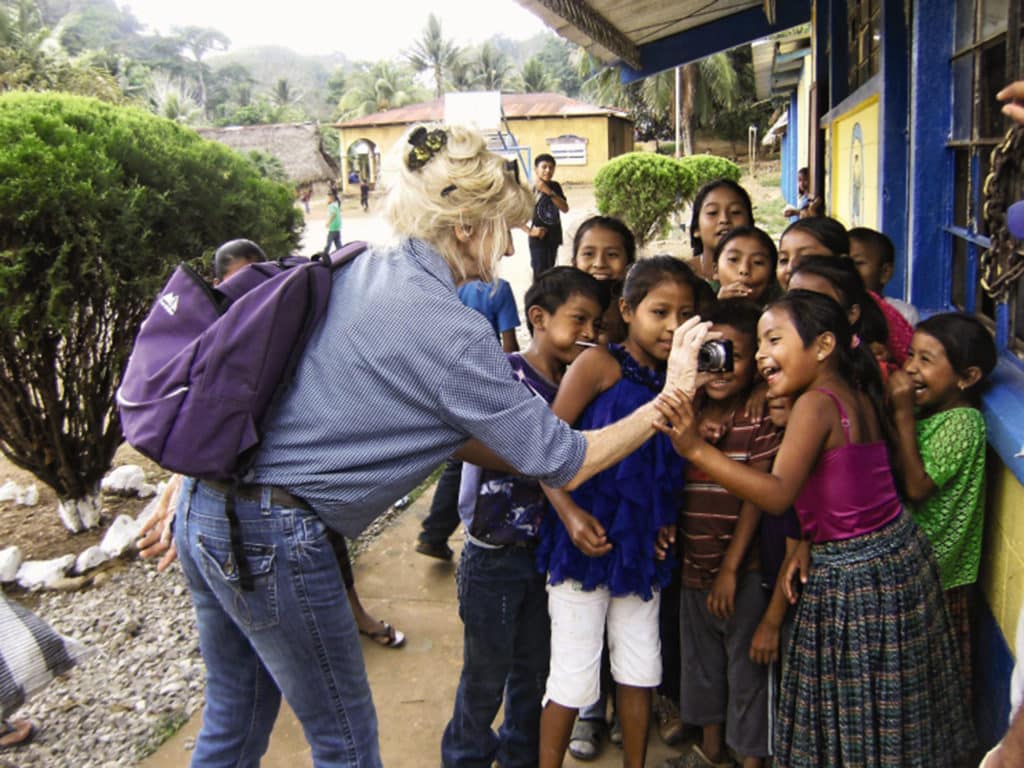
Fabien—who is part of the “alternative sailing community” alternativesailing.org, a group of cruising musicians and performing artists that rehabs old sailboats with recycled materials—has been out to several villages with Pass It On. “Before sailing, I hiked all through Central and South America. Often I had no money, and people took me in. This is the least I can do for them, and it’s a good excuse to get away from boatwork.” Fabien speaks good Spanish, and likes to joke around and make everyone laugh. Distributing eyeglasses is his preferred job because it involves a lot of interaction with the people.
Some of the older villagers are illiterate, so Bartlett devised an ingenious method to test vision by having folks thread needles. Those who can read are thrilled when they receive new lenses. “They are excited that they can read the bible again,” Fabien said. “Some of them get all shy and giggly when we hand them the mirror to check out the frames,” said Lori, a retired nurse volunteer. Lori gets a charge out of the kids, who initially hide their faces and later poke her in the side, begging to be photographed.
When my knee was feeling stronger, I was able to make a trip with volunteers to Méson Bueno Samaritano, the old-folks home. Dixie, one of the lead volunteers at the home, told me: “You have to go in with an open mind, without any expectations, and let things happen organically. You can’t try to immediately fix or change everything. It’s not our culture. It’s not our country. Sometimes we have trouble with the level of cleanliness or with the way the residents are treated by staff, but we can’t tell them what to do. We have to go slowly,” Dixie explained.
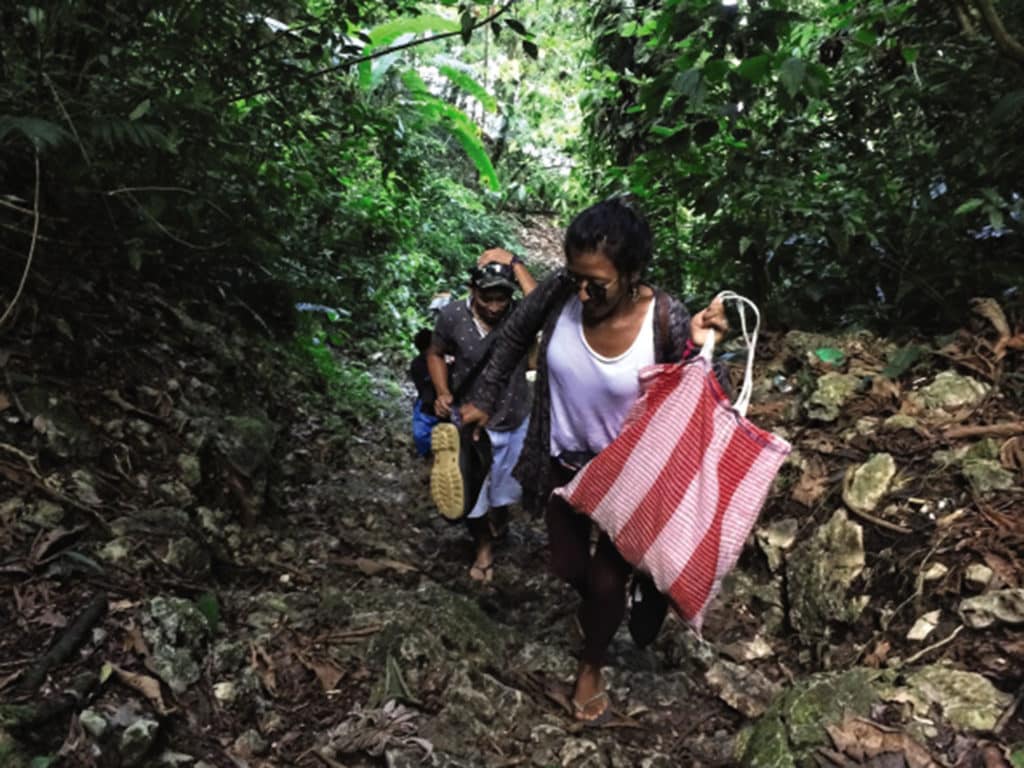
When I met Dixie and Jos, the other lead volunteer, in the Mar Marine lounge, they were unraveling rolls of toilet paper to create smaller ones. I was curious about what they were doing, and they explained that someone at the old-folks home was stealing the donated rolls of toilet paper from the bathrooms. With the smaller rolls, volunteers could discreetly hand them out to residents, who would put them in their pockets.
“The residents love it when we show up,” Dixie added. “People always want to help kids, but they forget about old people. They need love too. When it’s time to leave, the residents hold on to us and beg us to take them away. That’s the hardest part.”
Bartlett envisions an online network connecting sailors interested in volunteering with organizations that need their time and skills. “That way, when cruisers arrive in port and want to pitch in, they will already know where to go. There are volunteer opportunities all over the Caribbean.”
Volunteering is great way to give back to host countries, meet other cruisers, and pass the time when you’re stuck in port. You’ll forget about yourself, get a close-up view of another culture, and make a difference in people’s lives. Isn’t that what cruising is all about anyway?
Amy Flannery, Ken Kurlychek and Mary T are at home in Bradenton, Florida, waiting out the pandemic before making future cruising plans.W
hile my husband, Ken, and I were in Rio Dulce, Guatemala, aboard our Morgan 38, Mary T., I was eager to experience village life beyond the typical cruiser hangouts, and I was intrigued by the work of a charity called Pass It On Guatemala. Julia Bartlett, a British cruiser, created the organization in 2014 after sailing from England and island hopping through the Caribbean. Currently in her mid-70s, she has the energy of a teenager and works nearly every waking hour on her charity, without renumeration. She winces at the appellation of “Saint.”
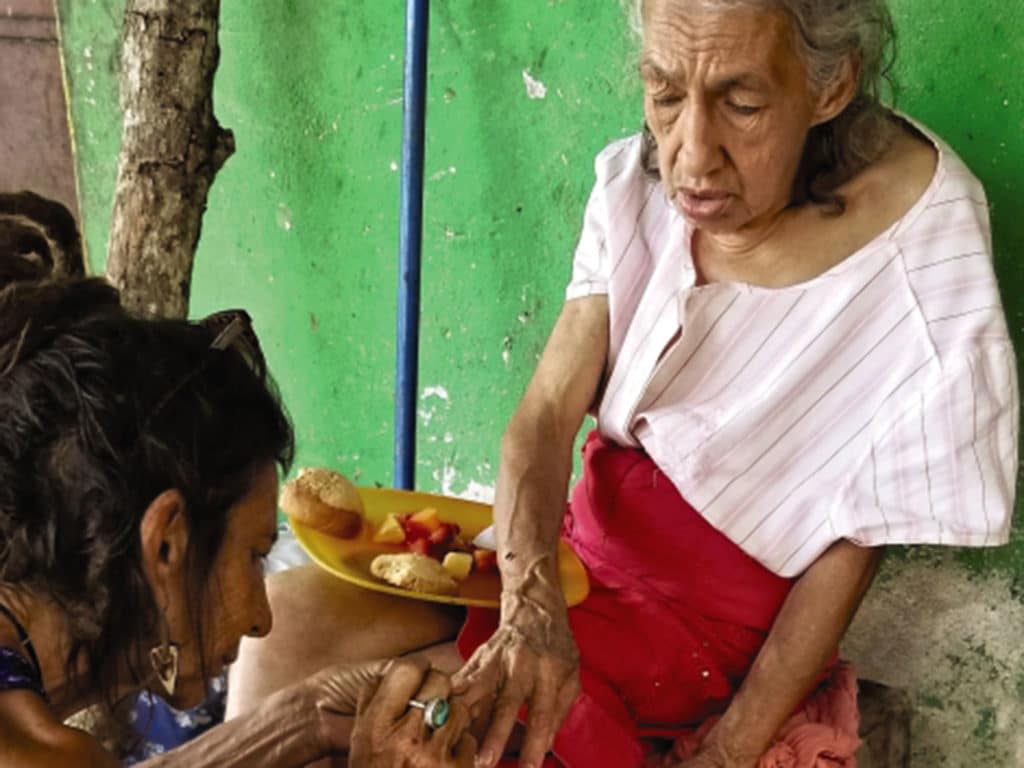
When I first met Bartlett in 2016, Pass It On Guatemala (passitonguatemala.org) had one simple mission: recycling discarded boat batteries and solar panels to light up schools and clinics in remote villages. Schools often double as community centers, and with the lights, village councils could hold meetings at night. Pass It On also offers solar lanterns to households with school children. “Kids were straining their eyes studying by candlelight or kerosene lamps,” Bartlett explained.
Over the years, the organization has expanded its mission. Now the team brings villagers first-aid kits, copies of Where There Is No Doctor in Spanish, eyeglasses and soccer balls. At an old-folks home for the poorest of the poor, volunteers prepare lunch, offer medical supplies, and shower the needy residents with smiles and hugs. Pass It On has also given scholarships to high school students, and puts on an annual lifesaving course for marina employees.
The charity is as much a boon to the environment and cruisers as it is to Guatemalans. Bartlett and her volunteers come directly to your boat to pick up used batteries and solar panels. Cruisers donate everything, from old boat parts to sails and clothes, which Pass It On sells at a bimonthly cruisers flea market, the organization’s primary source of revenue. Bartlett is the queen of recycling, reusing and repurposing.
Before I got the chance to go out to a village on an installation mission, I fell down in the marina parking lot and fractured my patella. Splat! All I could do was work the flea market and live vicariously through other volunteers, an eclectic bunch from around the globe. They described villages full of friendly, smiling children living in simple wooden homes with thatch or tin roofs and women cooking over open fires. Though most are subsistence farmers, a small number of villagers commute to towns for low-paying jobs. Rice and beans are their mainstay, but they always provide their best to volunteers, often offering chicken or fish for lunch.
“When we get it all set up and the lights go on, the kids clap and cheer,” said Rick, from Sojourner, a Pacific Seacraft 37. A former auto mechanic and owner of rental properties, he’s no stranger to electrical installations and is an invaluable asset in the field. “The first time I went to a village, we rode in the back of a pickup truck for over an hour and then hiked uphill for two hours,” he said. “When we got there, everyone gathered around us. They were fascinated by the electric drill. They’d never seen one before.”
What Rick liked best about volunteering was interacting with all the kids, and imparting his knowledge of electricity and wiring. “There was this one little boy in a village who followed me like a shadow. Every time I turned around, he was right there smiling at me, watching everything I did. I know people say it all the time, but helping others really does feel good, especially when you’re providing something folks really need.”
Jim on Dreamaway, a Hardin 45, echoed Rick’s feelings. “These people have next to nothing, but they’re so happy and grateful for what we’re offering. The kids get really excited when we come.” Jim spoke glowingly of the villagers’ work ethic and the democratic fashion in which the village councils operate. “It’s impressive,” he said. With his shock of white curly hair and beard, many kids think Jim is Santa Claus. “I tell them that the North Pole is too cold this time of year, so I like to come down here.”
Volunteers travel out to the sites in the back of a pickup truck or via motorboat, or lancha, to villages closer to the river. A few villagers always meet the team at the drop-off point to carry batteries and solar panels to the final destination, often a difficult uphill trek.
Bartlett’s right-hand woman and village liaison is a Guatemalan named Irene. She is one of the few paid employees at Pass It On. Irene studied to be a social worker, so Pass It On is right up her alley. She said: “My parents told me, ‘Today for you; tomorrow for me,’ like we should think of others before ourselves.”
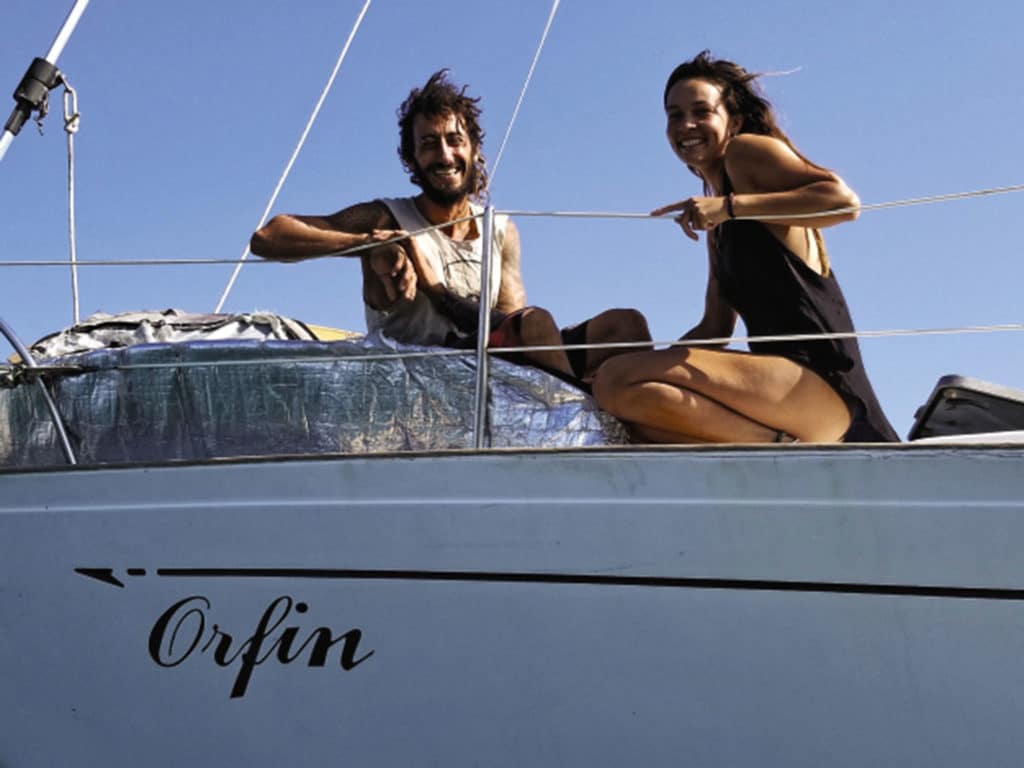
Irene discusses logistics and protocol with village representatives before volunteers come out. She explains they are coming to install a lighting system and instruct people how to maintain it. Then it is in the villagers’ hands. Irene told me that one village refused Pass It On’s offer of lights because they were afraid the volunteers would steal their children. “These villages are different from where I grew up. I like to get out and see how other people live. I want to see as much of my country as possible.” Irene and her German partner will soon sail for Panama, then through the canal on their 36-foot ketch. “I don’t know what I’ll do without her,” Bartlett lamented.
Fabien—who is part of the “alternative sailing community” (alternativesailing.org), a group of cruising musicians and performing artists that rehabs old sailboats with recycled materials—has been out to several villages with Pass It On. “Before sailing, I hiked all through Central and South America. Often I had no money, and people took me in. This is the least I can do for them, and it’s a good excuse to get away from boatwork.” Fabien speaks good Spanish, and likes to joke around and make everyone laugh. Distributing eyeglasses is his preferred job because it involves a lot of interaction with the people.
Some of the older villagers are illiterate, so Bartlett devised an ingenious method to test vision by having folks thread needles. Those who can read are thrilled when they receive new lenses. “They are excited that they can read the bible again,” Fabien said. “Some of them get all shy and giggly when we hand them the mirror to check out the frames,” said Lori, a retired nurse volunteer. Lori gets a charge out of the kids, who initially hide their faces and later poke her in the side, begging to be photographed.
When my knee was feeling stronger, I was able to make a trip with volunteers to Méson Bueno Samaritano, the old-folks home. Dixie, one of the lead volunteers at the home, told me: “You have to go in with an open mind, without any expectations, and let things happen organically. You can’t try to immediately fix or change everything. It’s not our culture. It’s not our country. Sometimes we have trouble with the level of cleanliness or with the way the residents are treated by staff, but we can’t tell them what to do. We have to go slowly,” Dixie explained.
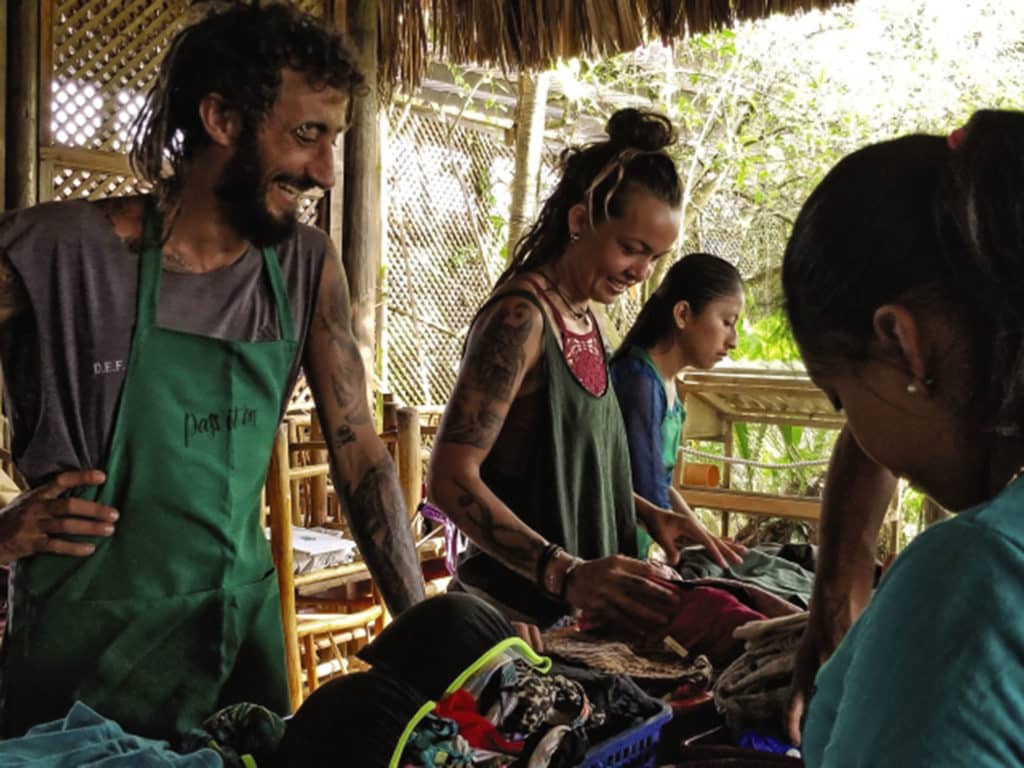
When I met Dixie and Jos, the other lead volunteer, in the Mar Marine lounge, they were unraveling rolls of toilet paper to create smaller ones. I was curious about what they were doing, and they explained that someone at the old-folks home was stealing the donated rolls of toilet paper from the bathrooms. With the smaller rolls, volunteers could discreetly hand them out to residents, who would put them in their pockets.
“The residents love it when we show up,” Dixie added. “People always want to help kids, but they forget about old people. They need love too. When it’s time to leave, the residents hold on to us and beg us to take them away. That’s the hardest part.”
Bartlett envisions an online network connecting sailors interested in volunteering with organizations that need their time and skills. “That way, when cruisers arrive in port and want to pitch in, they will already know where to go. There are volunteer opportunities all over the Caribbean.”
Volunteering is great way to give back to host countries, meet other cruisers, and pass the time when you’re stuck in port. You’ll forget about yourself, get a close-up view of another culture, and make a difference in people’s lives. Isn’t that what cruising is all about anyway?
Amy Flannery, Ken Kurlychek and Mary T are at home in Bradenton, Florida, waiting out the pandemic before making future cruising plans.


